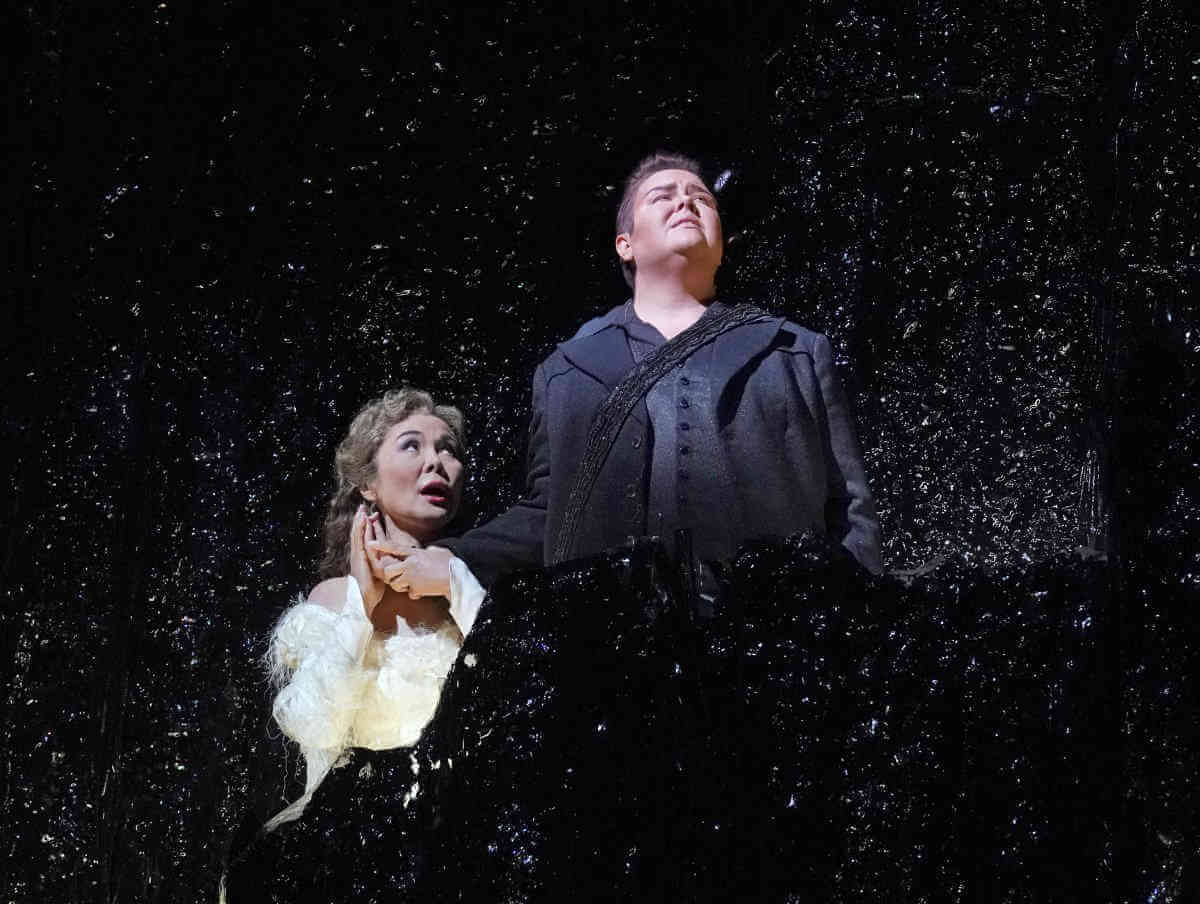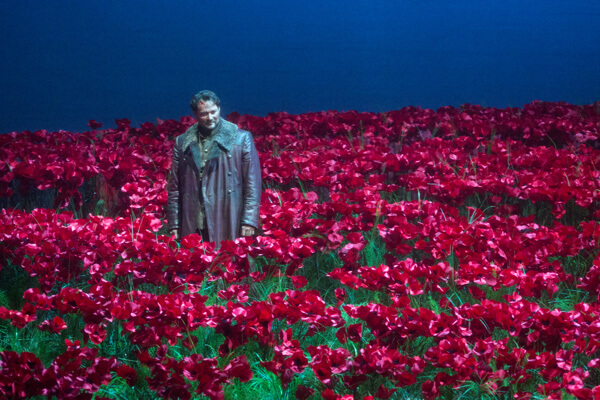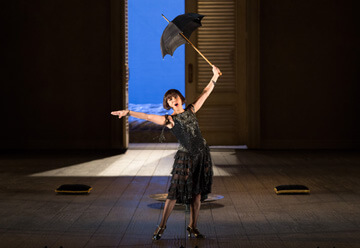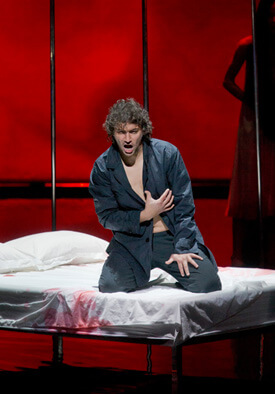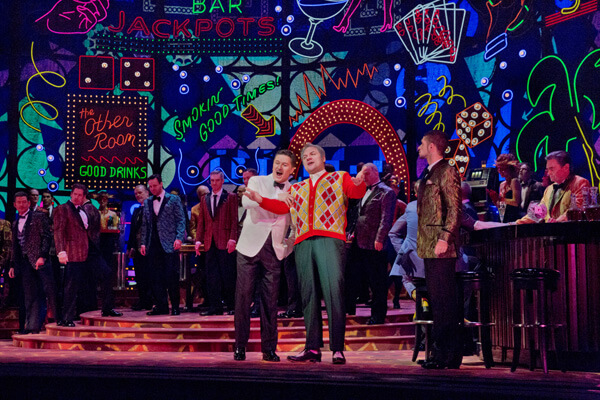Mezzo-soprano Jamie Barton came out as bisexual on Twitter in 2014 and has been an outspoken member/ ally of the LGBTQ community ever since. At the 2019 Last Night of the Proms in London, Barton walked out singing “Rule Britannia” carrying the Rainbow Flag rather than the Union Jack. At the Proms, she also wore a specially designed dress inspired by the Bisexual Pride Flag, which she also modeled — to an audience ovation — at the 2019 Richard Tucker Gala at Carnegie Hall on Sunday October 27.
Yet oddly enough for an enthusiastic fan of drag queens and cross-dressers, Barton has never played a trouser role — until this season’s Metropolitan Opera revival of Gluck’s “Orfeo ed Euridice”. With a side shave and pompadour, the unashamedly plus-size Barton made a very convincingly masculine Greek musician and poet in Mark Morris’ artistically uneven 2007 production.
As always, it’s the Barton voice that takes center stage. Equal parts mellow richness and brilliant thrust, her vibrant mezzo balances the lyrical and dramatic. In Orfeo’s opening lament “Chiamo il mio ben,” I felt that Barton (abetted by conductor Mark Wigglesworth) needed to more strongly contrast the desperation of the recitatives with the melancholy lyricism of the three repeated verses. The whole thing sounded one-note — elegiac sadness — and Barton also fell short in the low contralto register. From that point on, she built from strength to strength, culminating in a richly expressive rendition of Orfeo’s famous lament “Che farò senza Euridice?” with tasteful variations in the repeats. The restrained emotional power and eloquence of her singing matched with her imposing presence created a powerful center to Morris’ unfocused production.
Morris banishes the chorus, dressed as historical figures from different centuries, to mobile, multi-tiered, semi-circular choir stalls upstage where they are separated from the action (though they occasionally mimic Orfeo’s gestures to fussy and irrelevant effect). Their place onstage is taken by dancers in casual contemporary clothing performing Morris’ lackluster choreography. The musical acuity and inventive visuals of Morris’ triumphant 1988 choreographic version of Handel’s cantata “L’Allegro, il Penseroso ed il Moderato” are entirely absent here. The drab choreography seems to be mere filler, something that takes up space and time rather than filling the stage with expressive movement and suspending time.
The Metropolitan Opera is currently using Gluck’s spare 1762 original version without the chorus of Blessed Spirits or the other additions Gluck and Berlioz introduced into their Paris revisions. The Met’s musical standards are high: British maestro Wigglesworth conducts Gluck’s score with a keen ear for inner voices and precise details superbly realized by the Metropolitan Opera Orchestra and Chorus.
As Euridice, veteran soprano Hei-Kyung Hong (in her 35th season with the Metropolitan Opera) still possesses ageless beauty and strikingly pure tones. Her soprano has lost some of its creamy core and power and the lower range can be inaudible. Yet the disembodied color of Hong’s still-steady tone and her uncanny combination of visual youthfulness with an older soul within embodied a spirit caught between life and death.
As Amore, Hera Hyesang Park, a recent graduate of the Lindemann Young Artist Program, radiated androgynous charm in her pink T-shirt, chinos, and sneakers. Descending from the flies on wires like a baroque deus ex machina, Park spread sunshine onstage. Her sparky light coloratura had color and body as well as brilliance.
On October 27, Barton also brought down the house singing Eboli’s “Veil Song” and “O Don Fatale” at the Tucker Gala while modeling two eye-catching custom-made evening gowns, including the metallic gray dress with the rainbow lined cape. The audience greeted Barton with whoops and cheers like she was both a familiar old friend and an exciting superstar. Having come out as bisexual, Barton is still coming into her own as an artist with each performance revealing a new potential.


